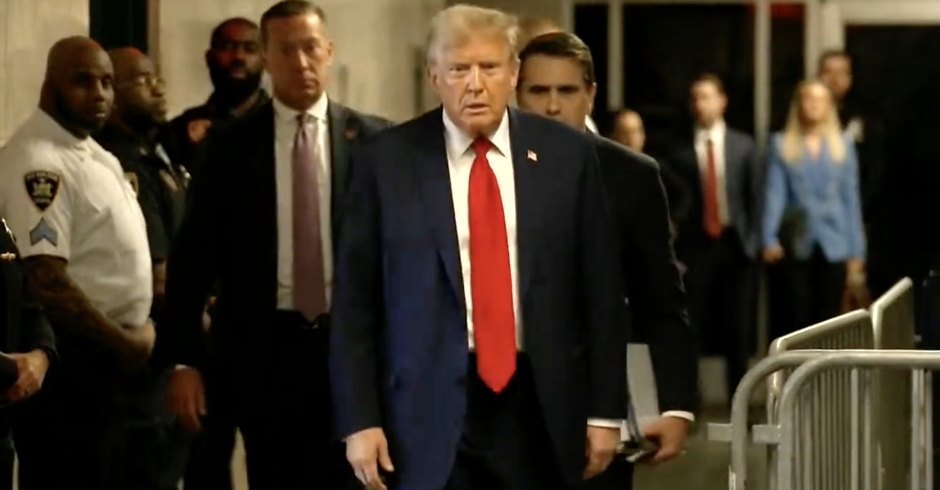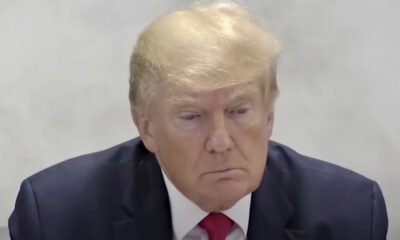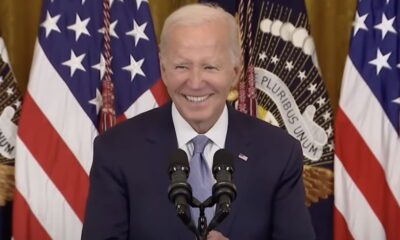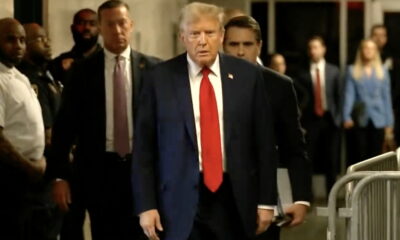News
LGBT Artists Make Big Strides In Country Music, But Still No Major Mainstream Breakthrough
43 Years After “Lavender Country,” There Is Still No Gay Nashville Superstar, But The Remarkable Mary Gauthier May Most Fully Embody The Power and Honesty of Country Music
Although country music has often been associated with intolerance, oppressive religion and jingoistic patriotism, the genre has nevertheless held a particular attraction for some LGBT audiences, both those from rural backgrounds who have grown up listening to country radio and others who were exposed to the genre later and came to appreciate its emotional storytelling.
Mainstream country music fans have been resistant to openly LGBT performers and themes, but a number of out performers have found appreciative audiences in niche markets, from gay rodeos and women’s music festivals to YouTube.
With its roots in the folk ballads of England, Scotland and Ireland, American country music was born in the blend of the “hillbilly” music of Appalachia, the African-American blues of the Deep South, and the wailing twang of the cowboy music of the West. But country music, Tina Gianoulis observes, “is more than a combination of various musical traditions. Lyrics give life to country music and those lyrics tell the real stories of ordinary people. Country music celebrates the trials and triumphs, loves and losses in the lives of small town, rural and, more recently, urban, mostly white, working people.â€
Perhaps the persistent attraction of country music for some LGBT audiences stems from the fact that the genre has traditionally been open to a wider range of topics than other types of popular music. In addition, it has proved to be a powerful vehicle through which to express emotions of yearning and alienation with which many LGBT listeners identify.
As Gianoulis notes: “Gay and lesbian audiences are attracted to the country scene for several reasons. First, the sincerity of country’s exploration of the emotions and experiences of working people draws many disenfranchised Americans to country. … Many gay men, unable to resist a pageant, are drawn to the campy side of country, even as they also appreciate the directness of the music’s emotional appeal. The adulation of gay men has been particularly important to the legends of such larger-than-life country music performers as Patsy Cline and Dolly Parton.”
Gay performers and songwriters have made important contributions to country music. That contribution was belatedly acknowledged in 2000, when the 1973 album Lavender Country by the band of the same name, founded by songwriter Patrick Haggerty, was inducted into the Country Music Hall of Fame. Inspired by the emergent gay liberation movement, the album includes songs like “Back in the Closet Again” and “Cryin’ These Cocksucking Tears,” which added a new dimension to country’s traditional themes of heartbreak and hope.
Nevertheless, while country music has been an important source of enjoyment and inspiration to many LGBT listeners, country music’s mainstream fan base has not welcomed openly LGBT performers.
Coming Out of Ty Herndon and Billy Gilman
This fact was underlined on Nov. 20, 2014, when two country music stars — Ty Herndon and Billy Gilman — announced that they are gay.
At the age of 52, Herndon confirmed long-standing rumors about his sexuality, telling Entertainment Tonight:Â “I have an awesome relationship that I’ve been in for a good number of years. [I] love him very much and he loves me.”
Hours later, Gilman, then 26, released a YouTube video in which he credited Herndon for easing the way to embrace his own truth.
Both men remarked in their coming out narratives on the difficulty of a gay person — or someone suspected of being gay — pursuing a career in country music.
Herndon, who produced his biggest hits in the 1990s, including “What Mattered Most” (1995), “Living in a Moment” (1996), and “It Must Be Love” (1998), revealed that he had convinced himself that he could not be gay and have a career in country music.
Hence, although he knew that he was gay when he was 10, and told close family members when he was 20, he went to great lengths to pass as straight so that he could be a country music singer.
“I have made a lot of mistakes in my life. They’ve been my mistakes, and I own them,” Herndon, who married two women before coming to terms with his sexuality, told ET. He added, “I’ve done a lot of work around forgiveness with people that I’ve hurt and people I’ve not been honest with because of my sexuality.”
He told People: “I had an incredible story that could possibly help someone’s son or daughter or grandchild’s life not be as difficult as mine has been. Maybe they wouldn’t have to go through as much pain and suffering. It’s time to tell my truth.”
Only hours after news of Herndon’s coming out went viral, Gilman released a video in which he also acknowledged his homosexuality. He said, “It’s difficult for me to make this video, not because I’m ashamed of being a gay male artist, or a gay artist or a gay person, but … [because] I’m in a genre and an industry that’s ashamed of me for being me.”
https://www.youtube.com/watch?v=5N7MBAPZWms
In 2000, at the age of 11, Gilman released “One Voice,” a Top 20 hit on the Billboard country music charts. When his album of the same title was released, he became the youngest singer to reach No. 1 on the Billboard Top Country Music Albums chart. Gilman continued to release top-rated singles and albums until 2006, when his career stalled — perhaps because with the arrival of puberty his voice had changed and he was no longer the adorable little boy with the big sound.
In his coming out video, Gilman revealed that rumors of his homosexuality likely played a factor in his difficulty getting record deals. He recalls that he “threw a showcase in Nashville, and no major label showed.”
On Sept. 20, 2016, in an effort to kick-start his career, Gilman appeared on the popular NBC singing competition show The Voice. In a “blind audition,†he wowed the coaches with a cover of Adele’s “When We Were Young.†Tellingly, he chose as his coach not country star Blake Shelton or even Miley Cyrus, for whose father, Billy Ray Cyrus, Gilman had opened in the early years of the century, but rocker Adam Levine, who promised to help remake Gilman as a pop singer rather than a country music singer.
https://www.youtube.com/watch?v=wkJrShaOaz0
As the stories of Herndon and Gilman illustrate, open or even suspected LGBT performers have not enjoyed the support of country music fans or the commercial country music establishment.
For example, despite k.d. lang’s amazing voice and the country twang she exhibited on her first albums, she was never fully embraced by the mainstream country music fan base. Not surprisingly, soon after coming out in 1992, she abandoned country music for enormous commercial success as a pop singer.
Similarly, Chely Wright’s (pictured) rising star in country music abruptly halted its ascension after she came out in 2010.
Wright’s story is told in the compelling 2012 documentary, Wish Me Away.
Although many established country stars, including Garth Brooks, Dolly Parton, Reba McEntire and LeAnn Rimes among many others, have expressed support for their LGBT fans and for equal rights, and others have recorded songs that convey messages of tolerance and inclusion, no openly LGBT country music singer has yet emerged as a major commercial star. The “LGBT earthquake†in country music that Diane Anderson-Minshall predicted in 2015 has not yet materialized, despite a number of promising tremors.
Open LGBT Country Artists
However, the failure of openly LGBT artists to break through the Nashville ceiling does not mean that there is no audience for country music by LGBT performers.
Indeed, the extraordinary response to Steve Grand’s “All-American Boy†on YouTube, where it received more than 1 million views within a week of its debut in 2013, called attention to the attraction of country music for LGBT people. Pitched almost exclusively to a gay male audience, Grand’s plaintive song of unrequited love struck a chord with a broad range of LGBT listeners.
A number of out country singers and songwriters, including Doug Stevens, Sid Spencer, Mark Weigle, Jeff Miller and David Alan Mors, have found a welcoming venue at events sponsored by the International Gay Rodeo Association, founded in 1985 to unite more than 20 gay rodeo organizations in the United States and Canada.
Many of the lesbian singers associated with women’s music, such as Meg Christian, Ferron, Alix Dobkin, Teresa Trull and the Indigo Girls, also have roots in country music. Although their music has not found favor within the country music establishment, it has nevertheless touched legions of fans who have found their own experiences affirmed in the music.
Other out LGBT singers and songwriters who perform and write country music, and who have found devoted fans, include Tom Goss, Drake Jensen, Doug Strahm, Eli Lieb, Will Hopkins, Sami Grisafe and Sonia Leigh.
Hope for LGBT Breakthrough in Mainstream Country Music
Most of the open LGBT country singers and songwriters work in niche markets, but one of the most important contemporary country music songwriters is Shane McAnally, an openly gay man who is co-parenting twin toddlers with his husband in Nashville. A commercial force in country music, McAnally was the subject of a New York Times profile by Jody Rosen in May 2013.
Rosen described him as “a songwriter with a unique melodic and lyrical touch, and an uncommon knack for hits. Since November 2010, he’s helped write seven No. 1 country singles, and numerous other fine songs, for some of the genre’s leading stars (Kenny Chesney, Luke Bryan, Lady Antebellum), legacy acts (Reba McEntire, Lee Ann Womack), and upstarts (Kacey Musgraves, the Band Perry).”
As Rosen reports, although country remains American music’s bastion of cultural conservatism, “McAnally presents a paradox: a Nashville powerhouse who is also an out gay man — a songwriter who cooks up chart-topping country songs at the home he shares with his husband and their 5-month-old twins.”
McAnally told Rosen that he is a successful songwriter not despite his being gay, but because he is open about his life. “My career really took off when I came out,” he said. “When I stopped hiding who I am, I started writing hits.”
McAnally credits his experience as a gay man with contributing to his songwriting. “I think gay men by nature are more sensitive. … I think I’m able to tell a story in a way that relates to both men and women. Guys don’t usually sing about the shame or the sadness of sex. But men do have those emotions, those experiences.”
The popularity of LGBT ally Kacey Musgraves’  2013 hit, “Follow Your Arrow,†which Musgraves wrote with McAnally and out lesbian Brandy Clark, has given hope that mainstream country music is becoming increasingly open to LGBT themes.
The fact that it was named “Song of the Year” by the Country Music Awards, an organization consisting of individuals who work full-time in the country music industry, has been seen as evidence that the industry has become much less homophobic than it once was. Even though the song received very little radio play, it was propelled to the charts by digital and streaming sales, which may suggest that conservative country music radio stations are now exerting less influence on country music sales than has been the case in the past.
Clark, who has written songs for Reba McEntire, LeAnn Rimes and Miranda Lambert, as well as for Musgraves, has also developed a following as a singer. Her 2013 album 12 Stories has been praised for its narrative voice and its inventive hooks. She may be the best bet to become the first out commercial country singer to be fully embraced by mainstream country music fans.
American Troubador Mary Gauthier
However, in some ways, the remarkable Mary Gauthier has already earned an unusual level of acceptance by the country music establishment, at least as epitomized by her frequent appearances at the legendary home of country music, the Grand Ole Opry. Gauthier will never be a commercial megastar, but the honesty of her art and its raw power have won her the admiration of a broad range of country music aficianodoes.
The New Orleans-born singer-songwriter grew up in Thibodaux, Louisiana, and later opened a Cajun restaurant in Boston. Hence, it is no surprise that her music is inflected by the rhythms of Cajun fais do-do, the dance music prevalent in South Louisiana, as well as other American musical idioms. Her music might best be described as “alternative Country.”Â
She is not a great vocalist, though her voice is enormously affecting, and her style of performance is studiedly low-key and deceptively simple. Often accompanied only by her own guitar and a violin, she nevertheless is capable of expressing a wide range of emotion, from unabashed joy to heart-wrenching pain.
Her songs, which frequently deal with such themes as abandonment and loss, are clearly grounded in personal experience, but they are never self-indulgent. Their emotional depth and spiritual insight transcend the particular event that may have inspired them.
As Jewly Hight has observed of Gauthier’s ability to forge resonant songs out of her experience, “The power of her work lay in the unwavering intensity and measured grace with which she magnified her characters’ ingrained impulses and refracted her inner dialogue outward.”
Gauthier herself has stated: “It’s not just about my life anymore. … People don’t care about personal songs, they want the deeply personal, which is the universal. I’m trying to get down to what connects us as human beings. I’m trying to write songs that people will be singing long after I’m dead.â€
One of her most beloved songs, “Drag Queens in Limousines,” tells the story of her own flight from home to find refuge in a bohemian household in a “bad neighborhood” in the city. Stifled by a life in which she does not fit in, the protagonist discovers that “Sometimes … you gotta do / What you gotta do / And pray that the people you love / Will catch up with you.”
Gauthier’s masterpiece is “Mercy Now,” a mournful song rooted in personal grief but that expands from the personal to the political as it moves from contemplating the death of a father to meditating on the woeful state of church and country in 2005. Every living thing could use a little mercy now, she concludes.
The most heartbreaking of her songs is “HIV Goddamn,” which is told through the perspective of a bewildered young man who has been infected with the virus at the height of the AIDS pandemic. It was on Gauthier’s first album, Dixie Kitchen, released in 1997.
“Walking Each Other Home,” a complex song of loss and acceptance, meditates on a love affair that went wrong. Recognizing that “on this side of the dirt” we live “somewhere between Cain and Abel,” the rejected lover finds a degree of peace in the knowledge that we are all on the same journey.
Gauthier’s “It Gets Better” video offers hope and encouragement to LGBT youth, telling them “There’s nothing wrong with you.”
More about Mary Gauthier may be gleaned from this interview with Scott Goldman at the Grammy Museum in Los Angeles soon after she released her album, Trouble and Love, and at her website.Â
Enjoy this piece?
… then let us make a small request. The New Civil Rights Movement depends on readers like you to meet our ongoing expenses and continue producing quality progressive journalism. Three Silicon Valley giants consume 70 percent of all online advertising dollars, so we need your help to continue doing what we do.
NCRM is independent. You won’t find mainstream media bias here. From unflinching coverage of religious extremism, to spotlighting efforts to roll back our rights, NCRM continues to speak truth to power. America needs independent voices like NCRM to be sure no one is forgotten.
Every reader contribution, whatever the amount, makes a tremendous difference. Help ensure NCRM remains independent long into the future. Support progressive journalism with a one-time contribution to NCRM, or click here to become a subscriber. Thank you. Click here to donate by check.
 |



















